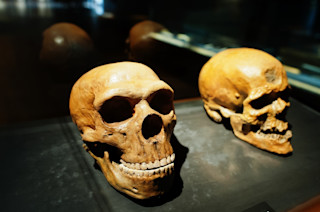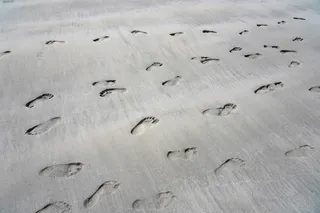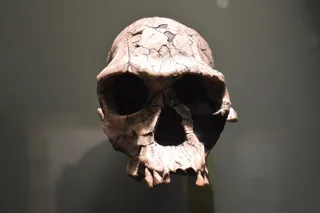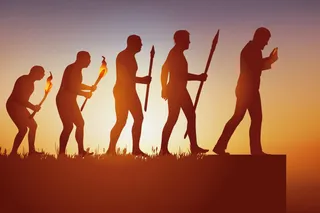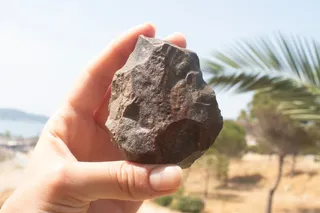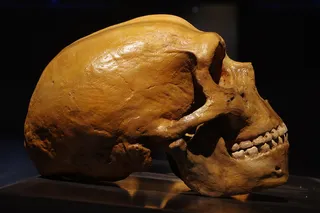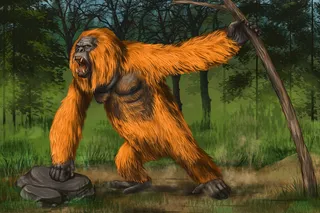The human mind is unlike any other. It’s the key that unlocked language, culture, abstract reasoning, long-term planning, and large-scale political coordination — all the cognitive features that set us so far apart from the rest of the animal kingdom. It need not diminish other creatures’ intelligence to describe ourselves, in the words of British psychologist Cecilia Heyes, as “animals that specialize in thinking and knowing.”
Yet, in another sense, we aren’t so separate from the rest of nature. It’s not like our brains leapt fully formed into existence; we evolved, one small step after another, over millions of years. And now scientists can follow that trail backward to our ancient ancestors, shedding light on the process that culminated in the three pounds of world-dominating intellect we carry around upstairs.
What’s so Special About the Way Humans Think?
There’s endless debate over what separates human cognition from that of other animals and when it emerged. Ideally, to answer these questions, we’d be able to compare ourselves with the long line of primate and hominin ancestors that led directly to Homo sapiens. But unfortunately, brain tissue — not to mention behavior — doesn’t fossilize.
The next best alternative is to see how we stack up against contemporary animals, most importantly, the great apes. Evan MacLean, an associate professor of anthropology and psychology at the University of Arizona, has argued that comparative studies can reveal a lot about our cognitive origins. In a 2016 paper, he suggests that the crucial difference between us and our closest living relatives is how we think about and engage with fellow members of our species.
We are leagues ahead in our ability to recognize other people as intentional agents with desires, plans, and knowledge that don’t necessarily match our own. “Already in the first years of life,” MacLean writes, “human children begin to experience the world not only through their own eyes, but also together with others.”
Chimpanzees share this skill to some degree, but they use it almost exclusively for competition. Experiments have shown, for example, that subordinate chimps monitor whether dominant chimps are aware of hidden food. If they are, the subordinates show due respect, but they’ll sneak the food for themselves when they know they can get away with it. This Machiavellian strategy makes sense in animals that live largely individualistic lives, banding together to hunt but otherwise looking out for Number One.
Read More: Compared to Neanderthals, Human Brain Growth is Slow and Steady
Human Cognition and Cooperation
For humans, on the other hand, cooperation is built into every aspect of life. We routinely take other people’s perspectives, and they take ours, and we all leverage our common understanding to communicate and set goals. Can you imagine a group of chimps agreeing on a restaurant? Fat chance.
Michael Tomasello, a professor of psychology at Duke University, has dubbed this explanation of human cognition the “shared intentionality hypothesis.” In his view, complex thought evolved primarily as a tool for generating “joint goals and joint attention” — for getting everyone to care about and focus on the same things.
In A Natural History of Human Thinking, he writes that humans “are able to coordinate with others, in a way that other primates seemingly are not, to form a ‘we’ that acts as a kind of plural agent to create everything from a collaborative hunting party to a cultural institution.” Our elaborate social world — by far the most advanced of any species — is sustained by this cooperative mental software.
Read More: Like Humans, Chimpanzees Talk to Coordinate Cooperative Hunts
Communication and Culture Shapes Human Intelligence
As for how our ancestors wound up in an environment that rewarded working together, Tomasello imagines a two-step process.
First, they began to collaborate in small-scale foraging. To do so efficiently, they had to develop a new form of communication, based on gestures like pointing, to direct other people’s attention toward anything relevant to their joint goal (“Look, berries!”). Human communication has since exploded into thousands of linguistically sophisticated languages, but those primitive gesticulations still play an important role: Children learn to point before they learn to speak.
Eventually, those small bands expanded, forming what Tomasello calls “a much larger and more permanent shared world, that is to say, a culture.” And as societies grew, life demanded more cerebral dexterity. People developed conventional language and started using it to reason and make decisions based on “objective” group norms.
Other factors probably worked in tandem. For instance, technological advances may have enabled people to work together more effectively, leading to a feedback loop known as techno-social co-evolution. “Innovations in tool-making may create pressure for more intensive cooperation,” Heyes writes, “and more intensive cooperation, in turn, puts a premium on further advances in tool-making technology.”
Interestingly, none of this implies that humans must think in the intricate ways we do. Complex cognition itself is not hardwired into our brains but rather the capacity for complex cognition. As Tomasello puts it, “A modern child raised on a desert island would not automatically construct fully human processes of thinking on its own. Quite the contrary.” Our minds are the product of extensive practice as we rehearse cognitive skills together throughout our lives.
Read More: Humans Aren’t the Only Primates Who “Share for Sharing’s Sake”
How Scientists Measure Intelligence
Of course, scientists can’t directly measure the development of these cognitive changes across prehistory. But poring over the fossil record, they have found a good proxy for intelligence: increased brain size relative to body size.
This “encephalization” is one of the most striking features of hominin evolution. If you were to lay out all our ancestors’ skeletons in a line, you would notice, first of all, that the entire body has gotten larger over time. However, looking closer, you’d see the cranium has gotten larger faster, outgrowing the rest of the body and packing more cognitive horsepower.
That said, the sheer number of neurons doesn’t adequately account for human cognition — your brain is more than the inflated mirror image of a chimpanzee’s. Throughout the course of encephalization, certain regions within the brain have also expanded more than others. The most important by far is the cerebral cortex (often called the “seat of higher thought”), which plays a key role in memory, learning, causal reasoning, and many other mental faculties. More than anything else, it’s what makes us human.
Read More: How Intelligence Is Measured In The Animal Kingdom
“We are Part of Nature”
The human mind is the most astonishing result of this uneven brain enlargement, but it isn’t an anomaly. In fact, Chet Sherwood, a biological anthropologist at George Washington University, explains that it’s exactly what you’d expect. Across all mammal lineages, brains tend to get larger in the same way: Evolutionarily, recent structures (in particular the cerebral cortex) blow up out of proportion to everything else.
Though our inflated noggins may seem qualitatively different, Sherwood explains that they emerge from a continuity with all the ancestors — human and otherwise — that slowly evolved in our direction. “You can see how those interactions really spool out into something that just seems special,” he says. “It is special but not surprising.”
It isn’t just brain development that’s continuous between us and other animals; it’s also behavior. Pick any trait you consider distinctly human, and odds are you’ll find some attenuated version in the wild: Chimpanzees hunt together, then share the spoils in (sometimes) egalitarian fashion; dogs have enough theory of mind to wait until their humans aren’t watching before they steal food; and it’s increasingly tempting to describe the structure of whale communication as language.
We’re the most extreme case of all these traits, no doubt, but in the big picture, we’re far from unique. And in Sherwood’s opinion, that’s encouraging — rather than an evolutionary aberration, we are simply an extraordinary kind of animal, one that figured out how to think very big thoughts. “We are,” he says, “part of nature.”
Read More: Why Are Smart People Some of the Most Gullible People Around?
Article Sources
Our writers at Discovermagazine.com use peer-reviewed studies and high-quality sources for our articles, and our editors review for scientific accuracy and editorial standards. Review the sources used below for this article:
Philosophical transactions of the Royal Society of London. Series B, Biological sciences. New thinking: the evolution of human cognition
Animal Behaviour. Do chimpanzees know what conspecifics know?
Professor of psychology at Duke University. Michael Tomasello
Developmental Review. The relationship between infant pointing and language development: A meta-analytic review
Encephalization. Evolution of the Primate Brain
Biological anthropologist at George Washington University. Chet Sherwood
In the Light of Evolution: Volume VI: Brain and Behavior. The Remarkable, Yet Not Extraordinary, Human Brain as a Scaled-Up Primate Brain and Its Associated Cost
Pan troglodytes. Animal behaviour. Egalitarian despots: hierarchy steepness, reciprocity and the grooming-trade model in wild chimpanzees, Pan troglodytes
WIREs Cognitive Science. Theory of mind in animals: Current and future directions
Nature Communications. Contextual and combinatorial structure in sperm whale vocalisations



